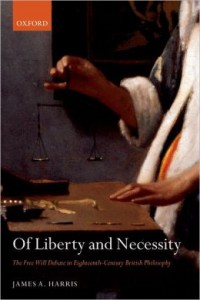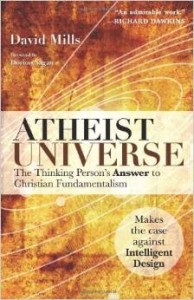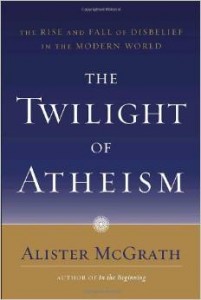Search Results for: papers/490937
The Big Questions in Science and Religion
Can religious beliefs survive in the scientific age? Are they resoundingly outdated? Or is there something in them of great importance, even if the way they are expressed will have to change in the new scientific context? These questions are among those at the core of the science-religion dialogue. In The Big Questions in Science and Religion, Keith Ward, an Anglican minister who was once an atheist, offers compelling insights into the often contentious relationship between diverse religious views and new scientific knowledge. He identifies ten basic questions about the nature of the universe and human life. Among these are: Does the universe have a goal or purpose? Do the laws of nature exclude miracles? Can science provide a wholly naturalistic explanation for moral and religious beliefs? Has science made belief in God obsolete? Are there any good science-based arguments for God? With his expertise in the study of world religions, Ward considers concepts from Buddhism, Confucianism, Taoism, Islam, Hinduism, Judaism and Christianity, while featuring the speculations of cosmologists, physicians, mathematicians, and philosophers. In addition, Ward examines the implications of ancient laws and modern theories and evaluates the role of religious experience as evidence of a nonphysical reality. Writing with enthusiasm, passion and clarity, Keith Ward conveys the depth, difficulty, intellectual excitement and importance of the greatest intellectual and existential questions of the modern scientific age. The diversity of views provides the general reader as well as opinion leaders with unbiased information in the science-religion field. ~ Product Description
1413434819
Atheist Universe
In this work, essentially an update of Mills’s Atheist Universe: Why God Didn’t Have a Thing To Do with It (2004), he surveys a variety of topics, including intelligent design and the origin of the universe, as well as conducts what appears to be a mock interview with himself. While some of Mills’s arguments are logically sound, his antagonistic way of presenting them grows tiresome. For example, he avers that agnostics choose agnosticism over atheism primarily owing to a lack of “guts,” failing to support that assertion with anything other than his own opinion. In addition, he calls all Christian fundamentalists naive and suggests that all public schools are “miserable.” But perhaps his most egregious mischaracterization is his description of atheism as a positive philosophy. Most scholars would agree that atheism is not a philosophy, but a factual premise based on logical conjecture. In fact, atheism addresses only one question: does God exist? In light of the various philosophical worldviews — e.g., humanism, secular Judaism — by
which atheists can choose to live their lives, Mills’s suggestion that atheism per se is a positive philosophy is unsubstantiated. Not recommended. ~ Brad S. Matthies, Butler University
The End of Faith
Sam Harris cranks out blunt, hard-hitting chapters to make his case for why faith itself is the most dangerous element of modern life. And if the devil’s in the details, then you’ll find Satan waiting at the back
of the book in the very substantial notes section where Harris saves his more esoteric discussions to avoid sidetracking the urgency of his message. Interestingly, Harris is not just focused on debunking religious faith, though he makes his compelling arguments with verve and intellectual clarity. The End of Faith is also a bit of a philosophical Swiss Army knife. Once he has presented his arguments on why, in an age
of Weapons of Mass Destruction, belief is now a hazard of great proportions, he focuses on proposing alternate approaches to the mysteries of life. Harris recognizes the truth of the human condition,
that we fear death, and we often crave “something more” we cannot easily define, and which is not met by accumulating more material possessions. But by attempting to provide the cure for the ills it defines, the book bites off a bit more than it can comfortably chew in its modest page count (however the rich Bibliography provides more than enough background for an intrigued reader to follow up for months on
any particular strand of the author’ musings.) Harris’ heart is not as much in the latter chapters, though, but in presenting his main premise. Simply stated, any belief system that speaks with assurance about the hereafter has the potential to place far less value on the here and now. And thus the corollary — when death is simply a door translating us from one existence to another, it loses its sting and finality. Harris pointedly asks us to consider that those who do not fear death for themselves, and who also revere ancient scriptures
instructing them to mete it out generously to others, may soon have these weapons in their own hands. If thoughts along the same line haunt you, this is your book. ~ Ed Dobeas
The s
Life is short. Nevertheless, billions of people invest incalculable hours making fruitless pleas to nonexistent gods, participating in lavish rituals with no tangible effects, and whittling away tight budgets to support extravagant religious institutions or “spiritual advisors.” Worse still, antiquated religious ideas lead people to impose needless hardships on themselves and others, to rationalize discrimination and other forms of mistreatment, and to hasten environmental destruction because they believe that “the end of the world” is imminent anyway. And for every outward manifestation of wasteful, counterproductive, and even downright harmful activity motivated only by religious belief, there are countless instances that are not nearly so obvious. Religious belief has exacted a toll on people’s emotional well-being as well. Just how much energy has been drained searching for meaning where none is to be found, or been squandered on false hopes and unwarranted fears? How many believers have agonized over the uncertain destination of their loved ones after death? How many have struggled to discern exactly what they did to displease God after falling victim to a natural disaster? How many have been tormented trying to make sense of why God allows terrible things to happen to good people? In the absence of any clear revelation about what God wants us to do, how many have fretted about whether their own actions or beliefs, or those of the people dearest to them, are enough to avoid hellfire? How many of those who have lost their faith in old age have looked back at all the missed opportunities, the roads not taken, the life that could have been, had they not been born in a religious household, or had they abandoned religion in their younger days!
Faithful Imagination in the Academy
In the past thirty years there has been a sea change in North American intellectual life regarding the role of religious commitments in academic endeavors. Driven partly by postmodernism and the fragmentation of knowledge and partly by the democratization of the academy in which different voices are celebrated, the appropriate role that religion should play is contested. Some academics insist that religion cannot and must not have a place at the academic table; others insist that religious values should drive the argument. ~ Product Description
The Twilight of Atheism
In this bold and provocative new book, the author of In the Beginning and The Reenchantment of Nature challenges the widely held assumption that the world is becoming more secular and demonstrates why atheism cannot provide the moral and intellectual guidance essential for coping with the complexities of modern life. Atheism is one of the most important movements in modern Western culture. For the last two hundred years, it seemed to be on the verge of eliminating religion as an outmoded and dangerous superstition. Recent years, however, have witnessed the decline of disbelief and a rise in religious devotion throughout the world. In THE TWILIGHT OF ATHEISM, the distinguished historian and theologian Alister McGrath examines what went wrong with the atheist dream and explains why religion and faith are destined to play a central role in the twenty-first century. The Twilight o will unsettle believers and nonbelievers alike. A powerful rebuttal of the philosophy that, for better and for worse, has exerted tremendous influence on Western history, it carries major implications for the future of both religion and unbelief in our society. ~ Publishers Weekly
0385500610
Thomas Reid on the Philosophy of Mind
The mind of man is the noblest work of God which reason discovers to us, and therefore, on account of its dignity, deserves our study. It must, indeed, be acknowledged, that although it is of all objects the nearest to us, and seems the most within our reach, it is very difficult to attend to its operations, so as to form a distinct notion of them; and on that account there is no branch of knowledge in which the ingenious and speculative have fallen into so great errors, and even absurdities. These errors and absurdities have given rise to a general prejudice against all inquiries of this nature; and because ingenious men have, for many ages, given different and contradictory accounts of the powers of the mind, it is concluded that all speculations concerning them are chimerical and visionary. But
whatever effect this prejudice may have with superficial thinkers, the judicious will not be apt to be carried away with it.


